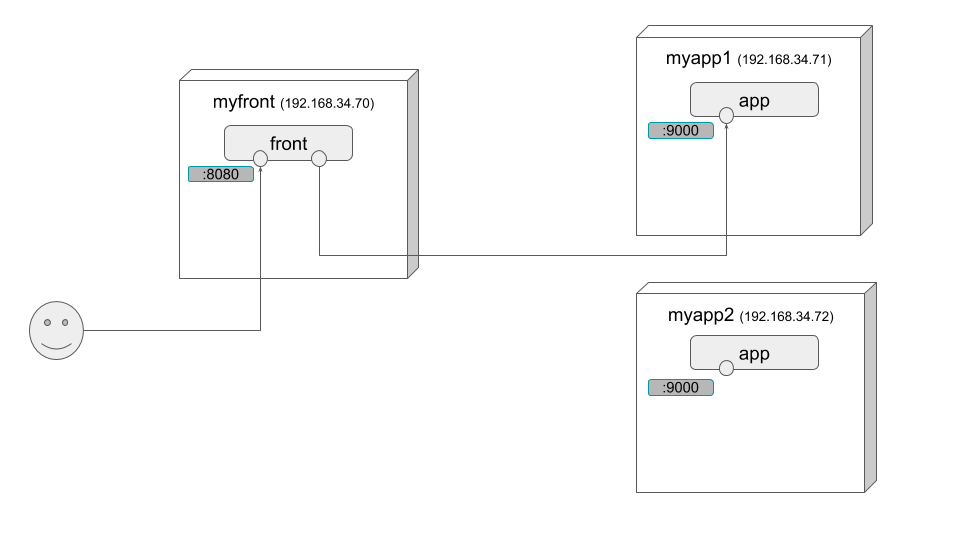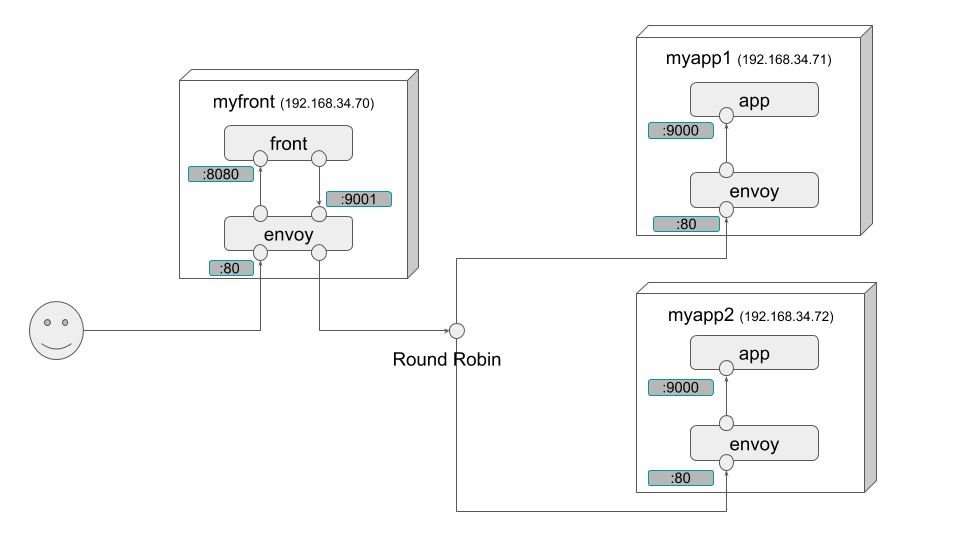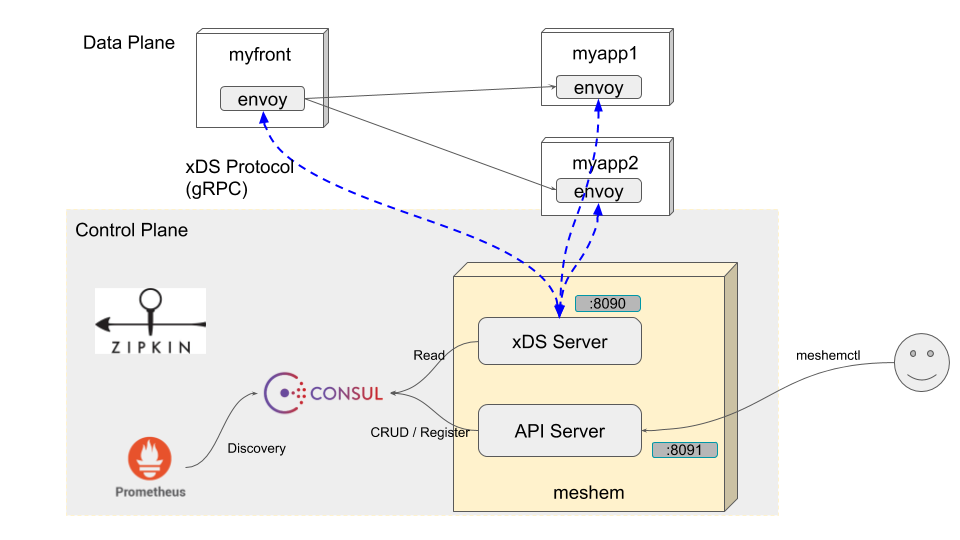meshem is a simple service mesh control plane application which depends on Envoy. This project consists of the followings.
- meshem server (xds and API)
- meshem CLI (meshemctl)
- Ansible playbooks that deploys control plane components.
- Example ansible playbooks of data planes.
- Docker Example.
You can get meshem server and CLI binary from Github release page. There is also a docker image that contains both of them. Try docker pull rerorero/meshem.
This implementation is not production ready as the purpose of meshem is mainly to learn envoy and service mesh.
go get github.com/rerorero/meshem
cd $GOPATH/src/github.com/rerorero/meshem
./run.sh
- Vagrant + Virtual Box
- python
Create all VMs.
vagrant up
Provision example services without envoy proxy. The example consists of app service and front service, both of them provide HTTP API.
cd ./examples/ansible
pip install -r requirements.txt
ansible-playbook -i vagrant site.yml
# default timezone is JST. You can change this by passing 'common_timezone' argument.
# ansible-playbook -i vagrant site.yml -e "common_timezone=UTC"
Check the response from front application.
curl 192.168.34.70:8080
At this point the service dependencies are as follows (myapp2 is not used yet).

Provision the meshem control plane.
cd ./ansible
ansible-playbook -i inventories/vagrant site.yml
Launch envoy proxies for each services.
cd ./examples/ansible
ansible-playbook -i vagrant data-plane.yml
Download meshem CLI binary(meshemctl) from Github release page and put it somewhere in your $PATH. meshemctl also can be built from source by running go install github.com/rerorero/meshem/src/meshemctl command.
Then let us regsiter the app service and front service.
cd ./examples/ansible
export MESHEM_CTLAPI_ENDPOINT="http://192.168.34.61:8091"
meshemctl svc apply app -f ./meshem-conf/app.yaml
meshemctl svc apply front -f ./meshem-conf/front.yaml
Deploy the front application sot that it uses envoy as egress proxy.
ansible-playbook -i vagrant site.yml -e "front_app_endpoint=http://127.0.0.1:9001/"
Currently the service dependencies are as follows.
The following figure shows the relationship between the control plane and the data plane.
Try to send HTTP requests to front proxy several times. From the response you can confirm that the requests are round robin balanced.
curl 192.168.34.70:80
Envoy metrics and trace results can be displayed.
- Zipkin is running on http://192.168.34.62:9411/
- Grafana is running on http://192.168.34.62:3000/
- Prometheus is running on http://192.168.34.62:9090/
- Dashoboard uses transferwise/prometheus-envoy-dashboards. Thanks!
Docker exapmle starts containers and build meshem binary from local source code.
go get github.com/rerorero/meshem
go get github.com/golang/dep/cmd/dep
cd $GOPATH/src/github.com/rerorero/meshem
dep ensure
cd ./examples/docker
# run.sh starts all of the relevant containers and register example services.
./run.sh

